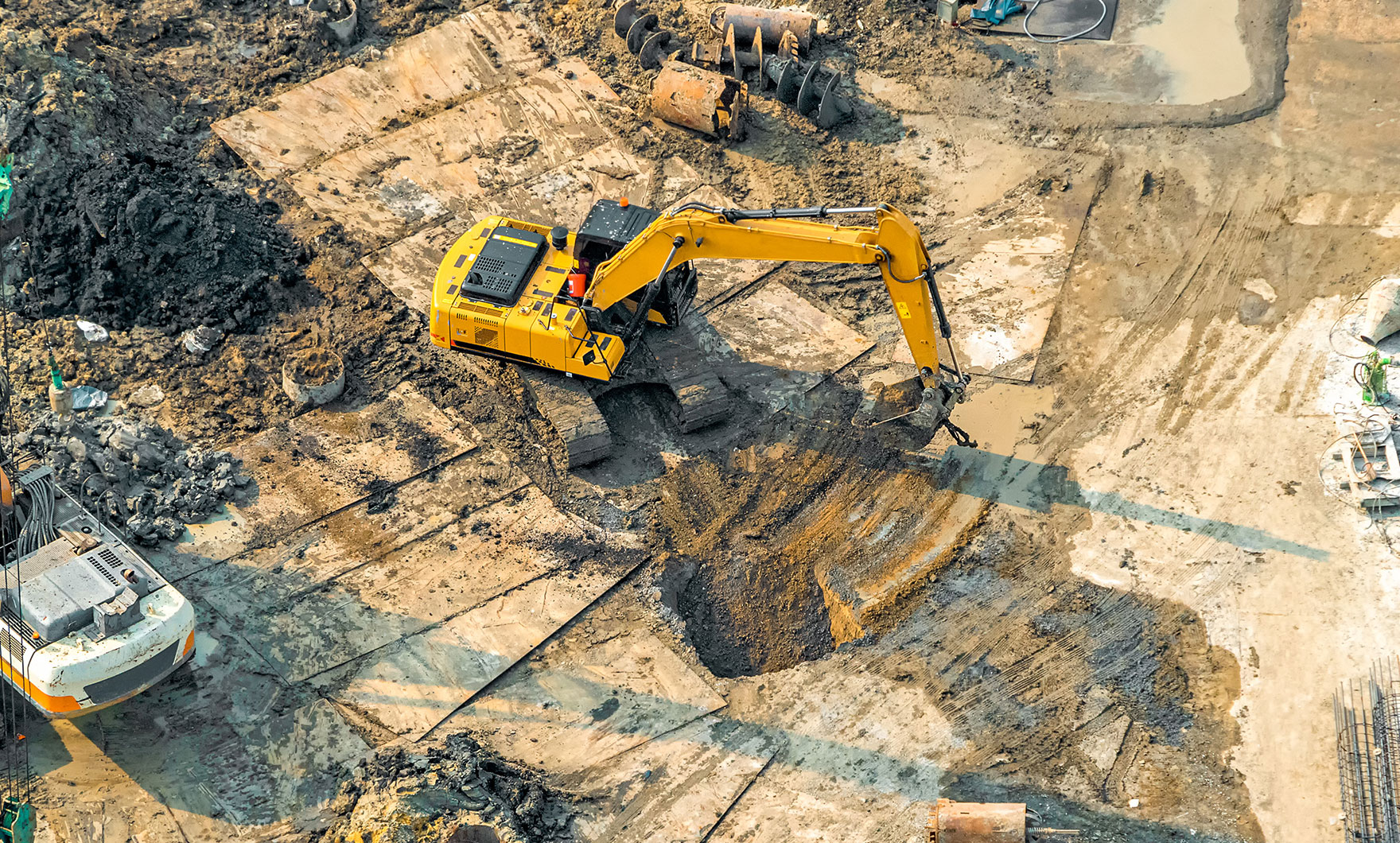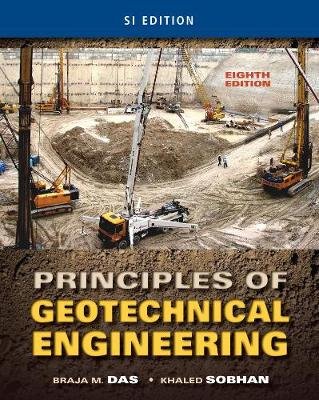Geotechnical Engineer Description: What to Anticipate from These Professionals
The Importance of Geotechnical Design in Addressing Environmental Obstacles and Enhancing Construction Security
Geotechnical engineering offers as a cornerstone in the junction of environmental stewardship and construction safety, offering critical insights into the actions of soil and rock under various problems. By applying critical site investigations and customized mitigation procedures, geotechnical engineers play an essential function in protecting both human lives and environmental honesty.

Duty of Geotechnical Engineering
Geotechnical engineering plays a crucial role in the design and construction of facilities by attending to the behavior of dirt and rock products under numerous conditions. This area of engineering is necessary for understanding the interaction in between structures and the ground, that includes establishing the load-bearing capability of dirt, assessing security, and predicting prospective settlement or failing.
Geotechnical designers are accountable for performing website examinations, which entail tasting and screening dirt and rock to gather data on their chemical and physical buildings. This information is important for creating foundations, preserving wall surfaces, and other earth-retaining structures that make sure safety and durability. Geotechnical design educates the selection of appropriate construction methods and products, therefore decreasing risks associated with dirt actions.
Additionally, the combination of geotechnical design principles into urban preparation and ecological management is vital for attending to difficulties such as ground contamination and groundwater monitoring. By comprehending geotechnical aspects, designers can create lasting options that enhance the durability of infrastructure against all-natural risks, while also promoting ecological stewardship. Eventually, the function of geotechnical design is indispensable for attaining safe, resilient, and environmentally conscious building techniques.
Soil Erosion Reduction
Dirt disintegration presents a substantial threat to both environmental stability and facilities stability, influencing roughly 24 billion bunches of abundant dirt shed every year worldwide. This phenomenon is worsened by elements such as deforestation, urbanization, and poor agricultural techniques. Geotechnical design plays a critical duty in establishing reliable dirt erosion reduction approaches that secure both the atmosphere and construction tasks.
One strategy entails the implementation of disintegration control methods such as greenery growing, which supports soil via origin systems. Furthermore, the building and construction of retaining wall surfaces and terraces can effectively reduce surface runoff and safeguard prone areas from erosion. Proper water drainage design is also vital; it lessens water build-up and routes excess overflow away from essential frameworks.
In addition, geotechnical engineers utilize soil stabilization techniques, such as the application of geotextiles and naturally degradable floor coverings, to boost soil cohesion and stop destruction - all about geotechnical engineering. Routine monitoring and analysis of erosion-prone sites make it possible for timely interventions, making certain long-lasting sustainability. By integrating these approaches, geotechnical engineering not only reduces the impacts of soil disintegration however additionally adds to the strength of framework against environmental difficulties, inevitably promoting a more secure and more lasting developed setting
Groundwater Defense Strategies
Groundwater functions as an important resource for alcohol consumption water, agriculture, and industrial processes, making its security crucial for ecological sustainability and public health and wellness. Efficient groundwater security techniques are essential in minimizing contamination threats and guaranteeing the durability of this resource.

Normal tracking of groundwater quality is likewise vital, enabling very early detection of contamination sources and assisting in timely remediation efforts. Utilizing sophisticated innovations, such as geophysical surveys and remote noticing, help in determining potential dangers to groundwater books.
In addition, public education and learning and stakeholder engagement are crucial, cultivating community support for groundwater protection campaigns. geotechnical specialist. By integrating regulatory steps, technical developments, and community involvement, we can develop a comprehensive framework that safeguards groundwater sources while promoting sustainable growth and construction practices
Landslide Threat Management
Landslides pose substantial dangers to both human security and facilities, making effective threat management techniques crucial. Geotechnical engineering plays a vital duty in recognizing, examining, and mitigating landslide risks. A detailed understanding of slope stability, soil technicians, and hydrology is vital for developing effective threat monitoring strategies.
The initial step in landslide risk management entails extensive site investigations, that include geological mapping and dirt testing. These examinations aid engineers examine the possibility for landslides by determining critical variables such as slope angles, dirt composition, and water web content. Making use of sophisticated modern technologies such as remote picking up and geophysical surveys can enhance the accuracy of these evaluations.
As soon as dangers are recognized, proper reduction measures can be applied. These might consist of engineering solutions such as preserving walls, drain systems, and slope stabilization techniques. Moreover, keeping an eye on systems ought to be developed to discover see this here signs of ground activity and changes visit this web-site in water levels, permitting proactive treatments.

Enhancing Building And Construction Safety And Security
Building sites frequently provide a myriad of hazards that can endanger worker safety and task honesty. Geotechnical design plays a critical role in enhancing building and construction security by offering essential insights right into subsurface problems. With comprehensive soil and rock evaluation, geotechnical engineers can determine prospective dangers, such as soil instability, groundwater problems, and seismic vulnerabilities, which might endanger the safety and security of building and construction tasks.
Executing geotechnical options, such as correct structure style and making use of keeping frameworks, minimizes these threats considerably. These options not just guarantee the stability of the frameworks being built yet likewise develop a safer working setting for building and construction workers. In addition, extensive tracking and assessment of site problems throughout the building and construction process are vital. Using innovative innovations like ground-penetrating radar and inclinometer systems makes it possible for real-time information collection, enabling timely interventions when risks are discovered.
Moreover, fostering a society of safety via training and adherence to developed safety procedures even more enhances construction website safety. By integrating geotechnical experience right into the preparation and implementation stages, building projects can accomplish greater safety and security standards, eventually protecting employees and ensuring successful task completion.
Final Thought
Finally, geotechnical design acts as a page vital self-control in advertising and tackling environmental challenges construction safety and security. Through effective soil erosion mitigation, groundwater protection approaches, and landslide danger administration, geotechnical designers add to the advancement of resilient facilities. The assimilation of these practices promotes a safer construction atmosphere and boosts the sustainability of civil engineering projects. Ultimately, the experience of geotechnical designers is indispensable in protecting both natural resources and human lives against prospective hazards.
Geotechnical engineering offers as a foundation in the crossway of environmental stewardship and building and construction safety, giving crucial insights into the behavior of soil and rock under numerous conditions. Geotechnical design educates the selection of proper construction techniques and products, therefore reducing risks connected with soil actions.
Geotechnical engineering plays a critical role in creating effective soil disintegration reduction approaches that secure both the atmosphere and building and construction jobs.
Additionally, geotechnical designers employ soil stabilization techniques, such as the application of geotextiles and biodegradable floor coverings, to improve soil cohesion and prevent degradation. Via detailed dirt and rock evaluation, geotechnical engineers can determine possible threats, such as dirt instability, groundwater issues, and seismic vulnerabilities, which might compromise the safety and security of building tasks.